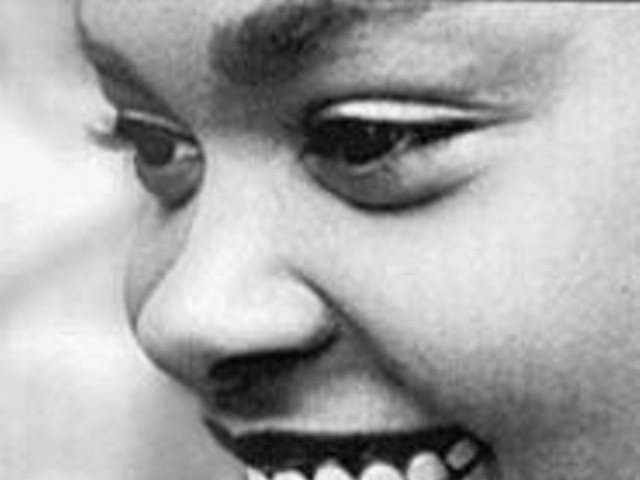Chao's new release, Proxima Estacion: Esperanza (roughly translated, Next Stop: Hope), continues his collage technique, juxtaposing materials that slowly evolve into songs (or, at the very least, into enjoyable bits of fused noise). Chao's linguistic plasticity is matched by the CD's wide assortment of instruments, including a Chilbi organ on "Papito," a shuffle guitar on "Merry Blues" and a child's flute in "Me Gustas Tu." The latter is a pop celebration of all the things he likes, a postmodern "A Few of My Favorite Things," if you will, that invites listeners to add their own catalogs. The more political "Mr. Bobby" takes up a riff from Clandestino and demands of "Bobby" Marley a salve for encroaching hopelessness: "Tonight I watch through my window/and I can't see no light/Tonight I watch through my window/and I can't see no rights."
The variety of instruments and languages is rendered more chaotic by audio fragments of radio DJs, sound clips and speeded-up vocals. What remains familiar in this pandemonium is the core Mano Negra rhythms and melodies that infuse much of Chao's solo work. Although there's obvious recycling from Chao's lifetime of performing -- two pieces share the "King of the Bongo" melody -- this speaks less to a lack of inspiration and more to Chao's musical philosophy; recycling for him, as for many folk artists, is a matter of reinterpretation rather than laziness, of playing with tradition and repetition rather than making the wheel anew each time. This may make Esperanza a less novel effort than Clandestino, but the payoffs remain. At its best, Esperanza is a sharp, subversive musical calaloo.





